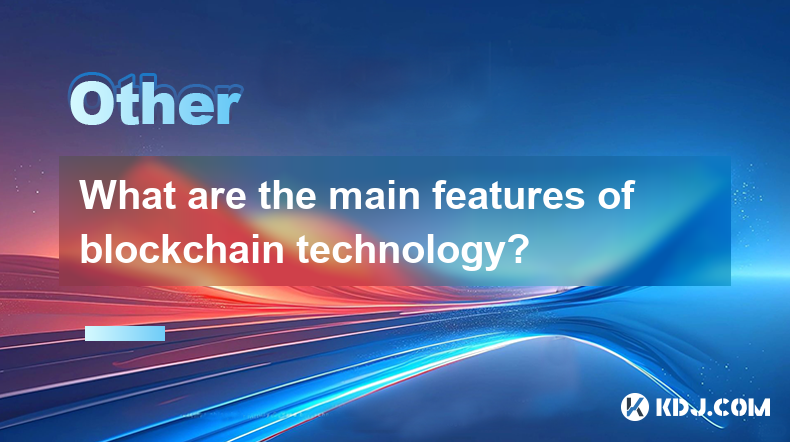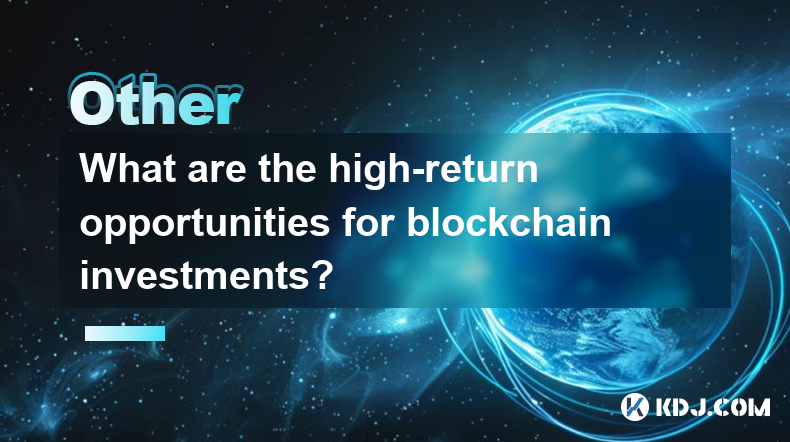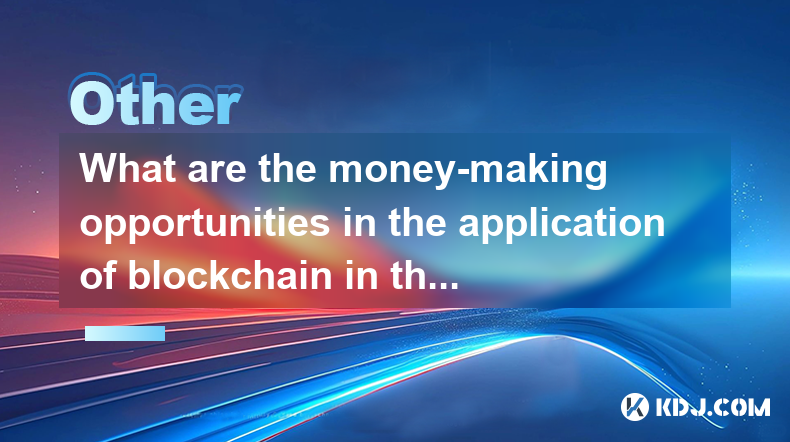-
 Bitcoin
Bitcoin $79,557.5233
-4.15% -
 Ethereum
Ethereum $1,621.4541
-9.44% -
 Tether USDt
Tether USDt $0.9994
-0.02% -
 XRP
XRP $1.9973
-6.12% -
 BNB
BNB $555.1591
-6.26% -
 USDC
USDC $0.9999
0.00% -
 Solana
Solana $107.9107
-9.44% -
 Dogecoin
Dogecoin $0.1520
-9.57% -
 TRON
TRON $0.2335
-1.80% -
 Cardano
Cardano $0.5889
-9.29% -
 UNUS SED LEO
UNUS SED LEO $8.8794
-1.87% -
 Toncoin
Toncoin $3.0652
-5.67% -
 Chainlink
Chainlink $11.5147
-9.14% -
 Stellar
Stellar $0.2400
-4.01% -
 Avalanche
Avalanche $16.3792
-8.68% -
 Shiba Inu
Shiba Inu $0.0...01137
-7.20% -
 Sui
Sui $1.9576
-11.41% -
 Hedera
Hedera $0.1433
-11.17% -
 Polkadot
Polkadot $3.7257
-5.27% -
 MANTRA
MANTRA $5.9545
-5.07% -
 Litecoin
Litecoin $72.7435
-11.51% -
 Bitcoin Cash
Bitcoin Cash $274.8473
-8.05% -
 Dai
Dai $0.9999
-0.02% -
 Ethena USDe
Ethena USDe $0.9986
-0.05% -
 Bitget Token
Bitget Token $4.1799
-5.82% -
 Pi
Pi $0.5983
1.73% -
 Monero
Monero $201.0669
-5.69% -
 Hyperliquid
Hyperliquid $10.4496
-11.56% -
 Uniswap
Uniswap $5.1916
-10.64% -
 OKB
OKB $50.4885
-2.17%
What are the main features of blockchain technology?
Blockchain's core features include decentralization, ensuring resilience; immutability, guaranteeing data integrity; and transparency, promoting accountability; all secured by cryptography and consensus mechanisms.
Mar 14, 2025 at 07:31 pm

Key Points:
- Decentralization: Blockchain's core feature, eliminating single points of failure and control.
- Immutability: Once recorded, data is virtually unalterable, enhancing security and trust.
- Transparency: All transactions are publicly viewable (depending on the blockchain type), promoting accountability.
- Security: Cryptographic hashing and consensus mechanisms ensure data integrity and prevent fraud.
- Efficiency: Automated processes and reduced intermediaries streamline transactions.
What are the main features of blockchain technology?
Blockchain technology, at its heart, is a distributed, immutable ledger that records and verifies transactions across multiple computers. This fundamental design gives rise to several key features that distinguish it from traditional centralized systems. These features are what make blockchain so revolutionary within the cryptocurrency sphere and beyond.
Decentralization: Unlike traditional databases controlled by a single entity, blockchain is decentralized. This means the data is distributed across a network of computers (nodes), preventing any single point of control or failure. If one node fails, the network continues to function. This inherent resilience is crucial for security and censorship resistance. In the cryptocurrency context, this means no single entity controls the cryptocurrency's supply or transactions.
Immutability: Once a transaction is recorded on a blockchain, it cannot be altered or deleted. This is achieved through cryptographic hashing, where each block of transactions is linked to the previous one using a unique cryptographic hash. Any attempt to alter a previous block would change its hash, rendering the entire chain invalid. This immutability is critical for maintaining the integrity and trustworthiness of the data.
Transparency: Many blockchains, particularly public ones like Bitcoin, operate with a degree of transparency. All transactions are publicly viewable, though often anonymized through the use of addresses rather than personally identifiable information. This transparency fosters accountability and allows anyone to verify the legitimacy of transactions. However, some blockchains prioritize privacy, offering varying degrees of anonymity.
Security: Blockchain's security is a result of the combination of decentralization and immutability. The cryptographic hashing ensures data integrity, while consensus mechanisms (like Proof-of-Work or Proof-of-Stake) ensure that only valid transactions are added to the blockchain. This makes it extremely difficult to tamper with the data or conduct fraudulent activities.
Efficiency: By eliminating intermediaries like banks or clearinghouses, blockchain can streamline processes and reduce transaction costs and processing times. Smart contracts, self-executing contracts with the terms of the agreement directly written into code, further automate processes, enhancing efficiency.
Scalability: While a significant advantage, blockchain's scalability remains a challenge. Processing large volumes of transactions efficiently can be computationally intensive and slow down the network. Various solutions, such as sharding and layer-2 scaling solutions, are being developed to address this limitation.
Consensus Mechanisms: The way new blocks are added to the blockchain is determined by its consensus mechanism. Proof-of-Work (PoW), commonly used in Bitcoin, requires miners to solve complex computational problems to validate transactions. Proof-of-Stake (PoS), used in many other cryptocurrencies, selects validators based on the amount of cryptocurrency they hold. These mechanisms ensure the integrity and security of the blockchain.
Smart Contracts: Smart contracts are self-executing contracts with the terms of the agreement written into code. They automate processes, reduce the need for intermediaries, and enhance efficiency and transparency. They are a powerful tool for creating decentralized applications (dApps) and have significant implications for various industries.
Cryptographic Hashing: At the heart of blockchain security lies cryptographic hashing. Each block of transactions is assigned a unique hash, a cryptographic fingerprint. Any change to the data within the block will result in a different hash, immediately revealing any tampering attempts. This ensures the integrity and immutability of the blockchain.
Types of Blockchains: There are various types of blockchains, each with its own features and applications. Public blockchains, like Bitcoin and Ethereum, are open to anyone. Private blockchains are permissioned, with access controlled by a specific group. Consortium blockchains are controlled by a group of organizations. The choice of blockchain type depends on the specific needs and requirements.
Frequently Asked Questions:
Q: Is blockchain technology only used for cryptocurrencies?
A: No, while blockchain technology gained prominence with cryptocurrencies, its applications extend far beyond. It's being explored in supply chain management, healthcare, voting systems, and many other sectors to enhance security, transparency, and efficiency.
Q: How secure is blockchain technology?
A: Blockchain's security is based on cryptographic hashing and consensus mechanisms, making it extremely difficult to alter or tamper with the data. However, no system is perfectly secure, and vulnerabilities can exist depending on the specific implementation and security practices.
Q: What are the limitations of blockchain technology?
A: Scalability remains a challenge, with some blockchains struggling to process large volumes of transactions efficiently. Energy consumption, particularly with PoW consensus mechanisms, is another concern. Regulatory uncertainty also presents a hurdle for widespread adoption.
Q: How does decentralization impact the security of a blockchain?
A: Decentralization distributes the data across a network of computers, making it extremely difficult for a single entity to compromise the entire system. If one node is attacked or fails, the rest of the network continues to function, ensuring resilience and security.
Q: What is the role of cryptography in blockchain technology?
A: Cryptography is fundamental to blockchain's security. It secures transactions, verifies identities, and ensures the immutability of the blockchain through cryptographic hashing and digital signatures. This cryptographic foundation underpins the trust and security of the entire system.
Disclaimer:info@kdj.com
The information provided is not trading advice. kdj.com does not assume any responsibility for any investments made based on the information provided in this article. Cryptocurrencies are highly volatile and it is highly recommended that you invest with caution after thorough research!
If you believe that the content used on this website infringes your copyright, please contact us immediately (info@kdj.com) and we will delete it promptly.
- Pepe (PEPE) Weekly Performance Hints At Huge Surge
- 2025-04-07 04:15:13
- XRP Price Tanks 12.8% This Week — More Pain to Come?
- 2025-04-07 04:15:13
- XRP's Funding Rate Has Dropped to Negative 0.012%, a Level Last Seen When the Asset Traded Near $0.33
- 2025-04-07 04:10:13
- A major supply event is coming for the SUI token
- 2025-04-07 04:10:13
- Memecoin DEX PumpSwap Makes a Significant Impact, Attracting 700K Wallets and Facilitating 30M Swaps
- 2025-04-07 04:05:12
- Ronin Network (RON) Has Retraced Heavily This Year
- 2025-04-07 04:05:12
Related knowledge

Is the ranking of Chinese blockchain apps real and reliable?
Apr 04,2025 at 09:01pm
The ranking of Chinese blockchain apps has become a topic of interest for many in the cryptocurrency community, as it provides insights into the popularity and adoption of blockchain technology within China. However, the reliability and authenticity of these rankings are often questioned. This article aims to delve into the factors that influence these ...

What are the future development trends of blockchain game development?
Apr 03,2025 at 05:00am
Blockchain technology has revolutionized various industries, and gaming is no exception. As we look to the future, several trends are set to shape the development of blockchain games. These trends not only promise to enhance the gaming experience but also to integrate blockchain technology more seamlessly into the gaming ecosystem. Let's explore these t...

What are the high-return opportunities for blockchain investments?
Apr 05,2025 at 02:35pm
Blockchain technology has revolutionized the financial world, offering numerous high-return investment opportunities. These opportunities span various sectors within the cryptocurrency ecosystem, including cryptocurrencies, decentralized finance (DeFi), non-fungible tokens (NFTs), and blockchain startups. Each of these areas presents unique risks and re...

What are the maintenance costs of blockchain system development?
Apr 03,2025 at 06:07pm
The maintenance costs of blockchain system development are multifaceted and depend on various factors. These costs can include technical maintenance, security updates, infrastructure expenses, and personnel costs. Understanding these elements is crucial for anyone planning to develop or maintain a blockchain system. Technical MaintenanceTechnical mainte...

What are the money-making models of blockchain games?
Apr 04,2025 at 02:00pm
Blockchain games have emerged as a revolutionary way for players to earn real money while enjoying their favorite pastime. These games leverage the power of blockchain technology to create unique money-making models that benefit both the players and the developers. In this article, we will explore the various money-making models of blockchain games and ...

What are the money-making opportunities in the application of blockchain in the field of Internet of Things?
Apr 05,2025 at 10:35pm
The integration of blockchain technology with the Internet of Things (IoT) presents numerous money-making opportunities. Blockchain, with its decentralized and secure nature, can revolutionize how IoT devices interact, manage data, and conduct transactions. This article will explore various avenues where entrepreneurs, developers, and investors can capi...

Is the ranking of Chinese blockchain apps real and reliable?
Apr 04,2025 at 09:01pm
The ranking of Chinese blockchain apps has become a topic of interest for many in the cryptocurrency community, as it provides insights into the popularity and adoption of blockchain technology within China. However, the reliability and authenticity of these rankings are often questioned. This article aims to delve into the factors that influence these ...

What are the future development trends of blockchain game development?
Apr 03,2025 at 05:00am
Blockchain technology has revolutionized various industries, and gaming is no exception. As we look to the future, several trends are set to shape the development of blockchain games. These trends not only promise to enhance the gaming experience but also to integrate blockchain technology more seamlessly into the gaming ecosystem. Let's explore these t...

What are the high-return opportunities for blockchain investments?
Apr 05,2025 at 02:35pm
Blockchain technology has revolutionized the financial world, offering numerous high-return investment opportunities. These opportunities span various sectors within the cryptocurrency ecosystem, including cryptocurrencies, decentralized finance (DeFi), non-fungible tokens (NFTs), and blockchain startups. Each of these areas presents unique risks and re...

What are the maintenance costs of blockchain system development?
Apr 03,2025 at 06:07pm
The maintenance costs of blockchain system development are multifaceted and depend on various factors. These costs can include technical maintenance, security updates, infrastructure expenses, and personnel costs. Understanding these elements is crucial for anyone planning to develop or maintain a blockchain system. Technical MaintenanceTechnical mainte...

What are the money-making models of blockchain games?
Apr 04,2025 at 02:00pm
Blockchain games have emerged as a revolutionary way for players to earn real money while enjoying their favorite pastime. These games leverage the power of blockchain technology to create unique money-making models that benefit both the players and the developers. In this article, we will explore the various money-making models of blockchain games and ...

What are the money-making opportunities in the application of blockchain in the field of Internet of Things?
Apr 05,2025 at 10:35pm
The integration of blockchain technology with the Internet of Things (IoT) presents numerous money-making opportunities. Blockchain, with its decentralized and secure nature, can revolutionize how IoT devices interact, manage data, and conduct transactions. This article will explore various avenues where entrepreneurs, developers, and investors can capi...
See all articles





















































































